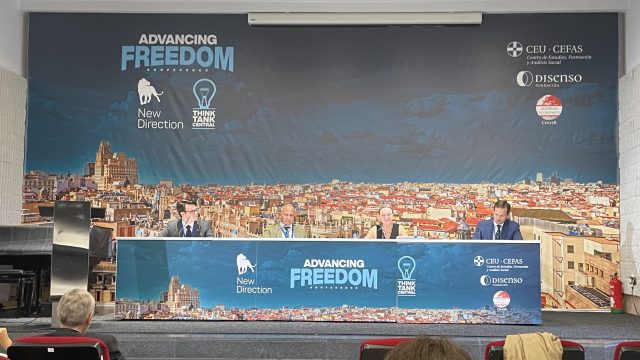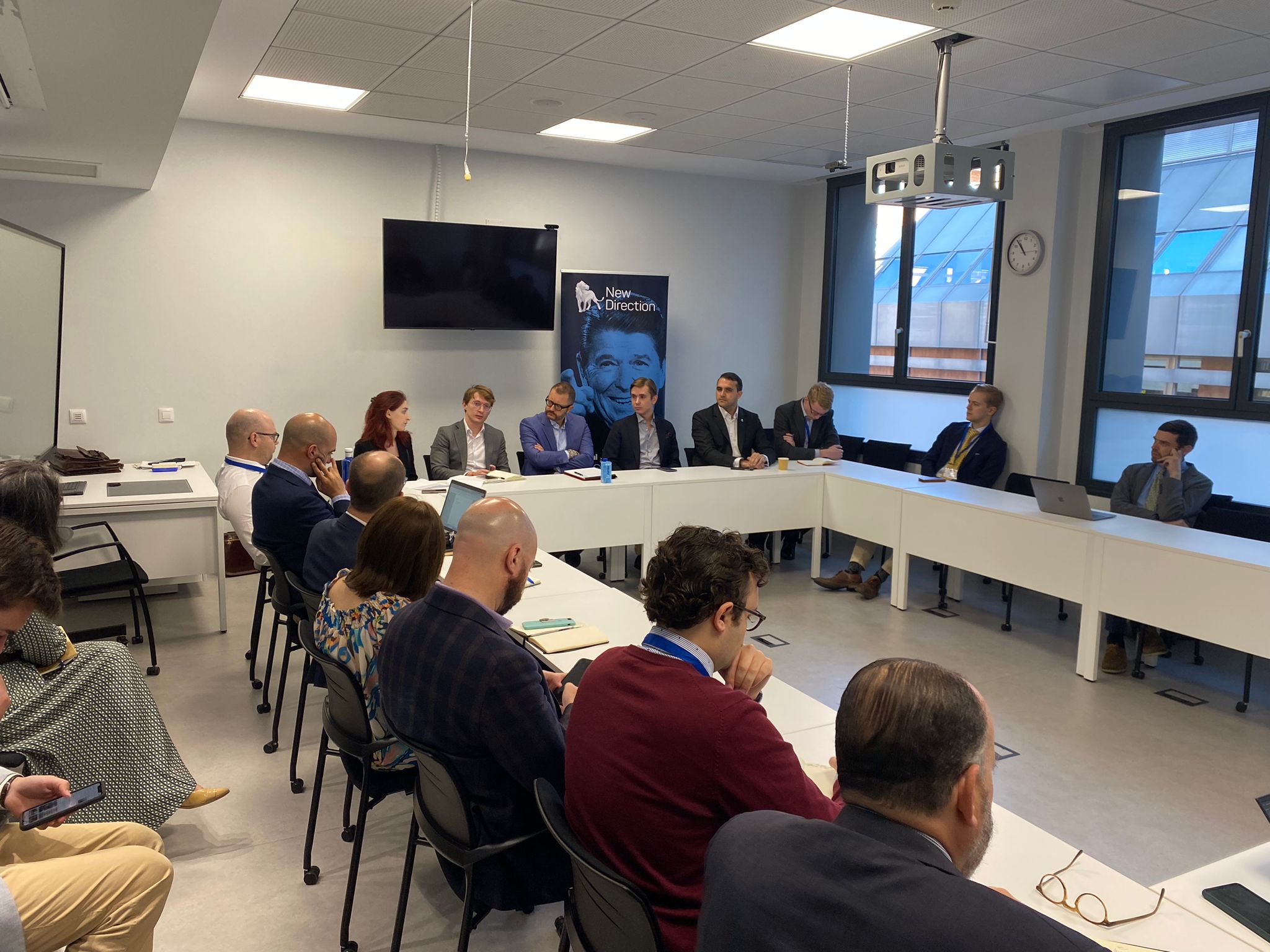
From September 20 to 22, Madrid hosted “Advancing Freedom,” an event organized by the New Direction Foundation to engage conservative think tanks and intellectuals in building a shared vision for the future of Europe.
The event featured numerous guests, but what truly stood out were the foundational themes that took center stage. Departing from the traditional panel discussion format, the conference encouraged open debates among participants, allowing them to independently choose which roundtable discussions to join.
These debates generated a plethora of proposals and insights that could serve as the basis for a comprehensive conservative agenda on critical issues shaping Europe’s future, such as education, regulation, foreign policy, and the economy. These proposals emerged from the convergence of diverse national cultures and local needs, all united by a common set of values within which to operate.
Of course, traditional-style gatherings also took place, such as the debate between libertarian author Yaron Brook and national-conservative academic James Orr. The discussion highlighted both commonalities and differences between the two ideologies, serving as valuable groundwork for future alliances that will be crucial in the 2024 European elections for the advancement of liberty. Subsequently, the debate stimulated broader conversations throughout the conference, with many contemplating how think tanks can collaborate to forge a more cohesive center-right movement in Europe. It might be advisable for each European country to establish at least one conservative think tank, ensuring representation for those regions that currently lack sufficient political voices.
The panels on economics provided some of the most thought-provoking discussions, covering topics such as the market economy from various perspectives within the center-right, the means to achieve a truly “free” market, alternative approaches to climate policy, security, and immigration challenges, and the pursuit of regional development from both economic and political standpoints. These are highly relevant issues that will increasingly come to the forefront and should be addressed before they become full-fledged electoral platforms.
One particularly moving moment was the panel dedicated to remembering the victims of communism in Europe. This sobering discussion shed light on the painful history of countries that are now loyal members of the European Union, including Hungary, the Czech Republic, Slovakia, and Poland, among others. These nations have too often been overlooked by Western historiography. European and American guests, some of whom lived under communist or authoritarian regimes, emphasized the importance of recognizing the inhumanity of communism and stigmatizing it in every possible way.
The Madrid event not only defined the moral, ethical, and cultural boundaries within which the future conservative leadership intends to operate but also presented a challenge for the future on all crucial issues. By networking and engaging in conversations about Europe’s key topics, and looking ahead, the conservatives in Spain and across Europe are positioning themselves as the only true alternative for the continent’s future. It is a pivotal moment where a course correction is needed, recognizing that this is the path to follow. Failing to do so risks the very real possibility, as some European commissioners have pointed out, of Europe drifting towards fragmentation. A weakened Europe is precisely what the enemies of Europe and the West desire.



 Subscribe
Subscribe